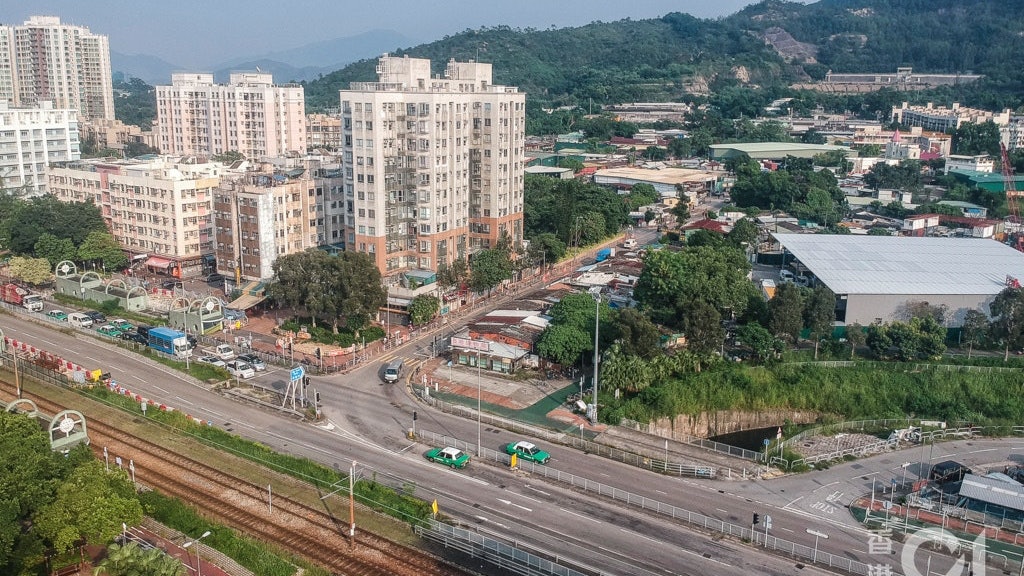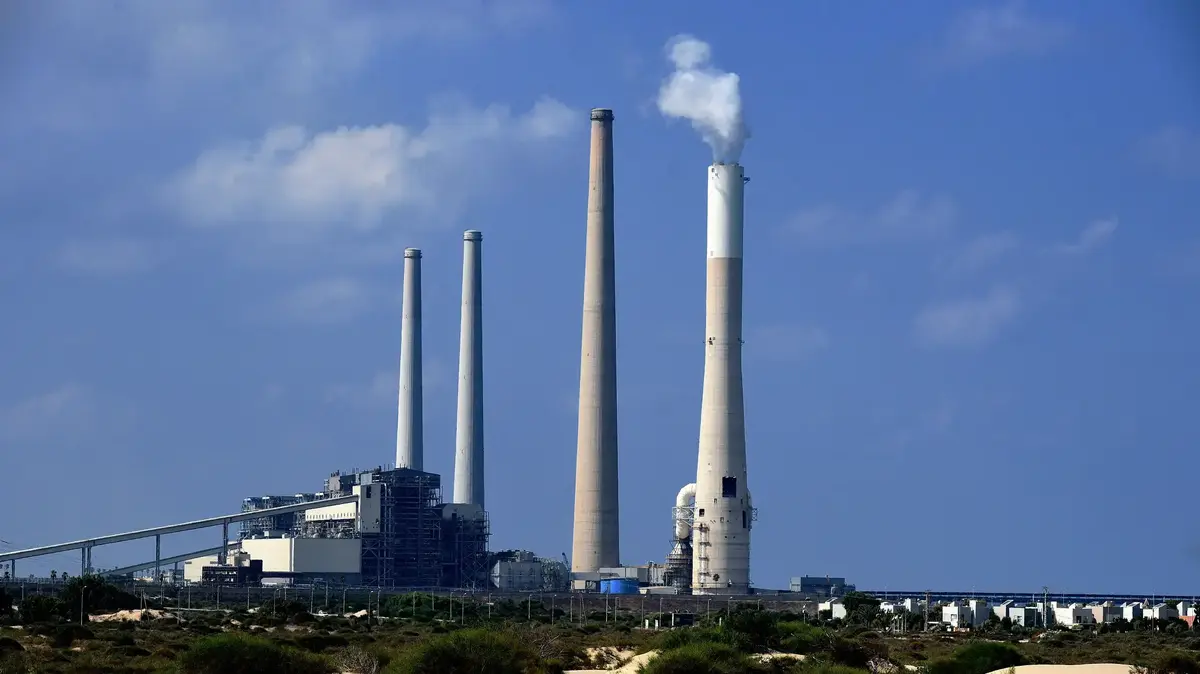weekly
Written by: Yang Yingwei
2021-06-16 08:30
Last update date: 2021-06-16 08:30
In fact, the Hong Kong government has certainly made many plans.
The annual "Policy Address" and "Budget" are planning the development direction for the coming year; for some important areas, such as "land issues", "Hong Kong 2030: Planning and Strategy" (hereinafter referred to as "Hong Kong 2030") And "Hong Kong 2030+" two major planning documents.
However, these planning documents are often criticized, criticizing the authorities for just filling the numbers and not knowing planning at all.
"Land planning is not just about land, but also about the activities of the entire city." Huang Yuanshan criticized that "Hong Kong 2030+" is determined by the Planning Department according to the needs of different departments and stakeholders. For example, the Hospital Authority does not want to build a hospital, and the Education Bureau does not need it. To build a school, the corresponding land will not be allocated, but "this is not a strategy document, but a survey of existing strategies." Huang Yuanshan sighed, "Such a "blueprint", if it sounds better, it is called "Bottom-up" (bottom-up/bottom-level design), brainstorming," is actually completely inverted from the top-down system planning.
To continue the above:
Is the myth of planning ability "system planning" or "questionnaire"?
Where are the shortcomings of the Bottom-up planning method?
One is that mixed opinions tend to blur the core issues; the other is that the planning process only focuses on immediate issues and lacks foresight.
On the whole, bottom-up planning is difficult to systematically mobilize resources and solve problems. It will only become fragmented, short-sighted, and planning for planning purposes, and cannot solve problems.
Zheng Yusheng also used the "Land Debate" as an example to criticize the Hong Kong government's disorganized planning.
He believes that with insufficient information, it is difficult for the public to distinguish the effectiveness of policies. Rushing to debate will only stay away from the core of the land issue. However, the government uses the debate as a guise, and in fact it is just doing a questionnaire, and wants to increase the implementation of certain policies through public opinion. The rationale for the policy.
For example, many people would oppose the development of the border areas of country parks because they support environmental protection, or they would approve of development because they saw a large number of brownfields in dilapidated conditions. However, everyone may not understand the high or low ecological value of country parks in different locations and engage in different operations. Brownfield development costs are also inconsistent.
He worries that from the general public to the SAR government, the perspective of discussing issues is too narrow, and it will eventually be difficult to promote effective planning.
Zheng Yusheng used the "Land Debate" as an example to criticize the Hong Kong government's planning for disorder.
(Profile picture)
The well-known problem of "industry consolidation" is also closely related to the lack of forward-looking bottom-up planning of the SAR government.
Taking the science and innovation industry as an example, Huang Yuanshan pointed out that although society and politics have a consensus on building an international science and technology innovation center, the development of science and innovation still lacks an ecosystem (ecological environment). The reason is that the politicians live in the "old world." If you want to untie the "knot" in the middle, you don't have to ask the people now. Those are the old world, old plants, and old soil."
Zheng Yusheng further explained: "The industry we are talking about is the industry of the future, which has no political or interest representative in Hong Kong." In the future, it will be difficult for the industry to obtain the resources needed for development through bottom-up channels, and it is even harder to talk about competing with old industry stakeholders. , In the long run will only remain the same.
Take innovation and technology as an example. If training and pooling talents are indispensable for development, Hong Kong wastes a lot of time discussing the "chicken and egg" issue of "industry or talent first". In the end, "the two ends do not reach the shore." The industry and talents are already available, and the two complement each other.
"Government officials in the Mainland or Singapore are living in the future." Huang Yuanshan said, "Shenzhen grew out of nothing, and the government would not ask people who were in Shenzhen 20 years ago: How should Shenzhen develop in the future? Because the future is built. It is implemented after having a vision.” He pointed out that the government’s method of “planning” should be “top-down” (top-down/top-level design), and this is not “imaginary” but discovery Trends and directions, "If Hong Kong has no advantage in doing innovation and technology, you will not rashly say to develop innovation and technology! The problem is, you see these are "beautiful varieties", but the soil is used incorrectly or blocked by the cover. Is that to think about how to not hinder its growth?"
Huang Yuanshan said, "Shenzhen grew out of nothing, and the government would not ask people in Shenzhen 20 years ago: How should Shenzhen develop in the future? Because the future is built and implemented with a vision." (Information picture )
Huang Yuanshan uses biotechnology as an example to explain how to think about urban development from the "future".
Hong Kong has the advantages of basic research in biotechnology, and the listing reform of the Hong Kong Stock Exchange in recent years has also made Hong Kong the world's second largest listing place for biotechnology companies. But why hasn't the development of biotechnology in Hong Kong been fully developed?
"Missing gap (fault) is the middle part-there are really few biotech companies founded by Hong Kong entrepreneurs, using Hong Kong technology, and inviting Hong Kong employees to set up." Huang Yuanshan quoted from the Solidarity Hong Kong Fund's research as saying that Hong Kong laws do not support new drugs. For clinical trials, the Hong Kong government has not established a department to approve new drugs, so that the listing of new drugs still relies on the certification of drug regulatory authorities in other countries/regions.
He criticized that the regulatory system of this backward era was "sufficient" in the past, but could not meet the needs of the future. "If we have many new medical ideas from basic research to product launches, there should always be an interactive process. Is that necessary? Gradually build up the ability to review new drugs?"
Huang Yuanshan took new towns as an example to explain that the land and housing policy should practice top-down thinking in order to achieve systematic planning: "Land development is not just about building buildings, but about urbanization or building a new town... This argument is not about whether this piece of land is farmland, brownfield or ancestral land. It is not land administration (land management), but the large-scale development of the entire town." However, the SAR government is also a stepping stone to the supply of land. To make up for the east and the west.
The concept of "new towns" was formed in Hong Kong before the British colony. In addition to residential areas, town construction also includes commercial, industrial, recreational areas and supporting transportation infrastructure.
Shatin and Tseung Kwan O are both new towns. "There are so many people living in Tseung Kwan O. If you don't have Tseung Kwan O, what will happen?" Huang Yuanshan sighed. Hong Kong used to build nine new towns in 30 years (see the picture below) "But in the past two decades, no new town has been completed." The newly completed new town is the Tung Chung of the last century.
He criticized that even though Chief Executive Carrie Lam Cheng Yuet-ngor claimed to have found eight brownfield clusters that would "satisfy the supply of public housing in the next ten years", "each brownfield is more than ten hectares, while the Shatin is 3,000 hectares" and they are scattered in the yuan Long, Tuen Mun, Tai Po and other areas are completely different from the goals of systematically building a town hub and establishing a livable city.
The concept of "new towns" was formed in Hong Kong before the British colony. In addition to residential areas, town construction also includes commercial, industrial, recreational areas and supporting transportation infrastructure.
The picture shows that the new town of Tin Shui Wai is separated from the brownfield by a river.
(Profile picture / Photo by Liang Pengwei)
The myth of execution ability draws cakes to alleviate hunger, who will "flies"?
To trace it back, the last new town plan was the "New Development Area" proposed by the government in the "Hong Kong 2030" in 2007, but it was unexpected that 20 years have passed and the construction has not yet been completed.
Take Hung Shui Kiu as an example. After being selected as a new district by the government in 2003, the plan was shelved. It was re-launched in the 2007/08 Policy Address. However, it was delayed until 2011 by the Civil Engineering and Development Department and the Planning Department. There is a preliminary outline development plan. Until 2020, the Public Works Group of the Legislative Council will approve the funding for the preliminary, first and second phases of the project. The construction is expected to be completed in 2024, and the first batch of residents will move in thereafter; on the other hand, as early as 2011 The Hung Shui Kiu Station of the MTR, which has begun planning, has been repeatedly postponed until recent months before the detailed design has been launched.
Ming Hung Hung Kiu Station was planned as early as 2011-that is, the first batch of residents who will move in in 2024 will have to wait six years for the MTR to be provided.
Once regarded as the most efficient Hong Kong government in the world, today it took 20 years to develop a new town from planning to implementation.
Such a low execution ability, no wonder it will cause society’s distrust of the “planning” led by the government, which proves in disguise that the government “lack of governance energy”, unable to “build consensus” and “remove resistance” to implement policies.
Behind the poor execution ability is the government's bureaucracy.
Huang Yuanshan used land rezoning as an example to illustrate the "two sides of one currency" of procedural justice and bureaucracy at the "Hong Kong Economic Outlook" seminar: A piece of land in Kowloon City covers an area of 0.4 hectares and is planned to be used for the construction of 600 units The predecessor of the site was the Kowloon Animal Management Center under the Agriculture and Fisheries Department and the dormitory and parking lot under the jurisdiction of the Electrical and Mechanical Services Department. The rezoning started in September 2014 and the rezoning was completed in May 2015.
However, because the animal management center is still to be moved out, the relevant land cannot be constructed immediately; the problem is that the center was scheduled to move to Kai Tak before 2022 as early as 2017, but it was further postponed to 2023 after discussion by the district council in 2019. year.
At the time of the blockage, the charity organization sought out the site and applied for a short-term lease as transitional housing in July 2019. If the application is successful, the site will provide 100 transitional housing units instead.
The Solidarity Hong Kong Fund estimates that if the area is rezoned, 600 public housing units can be provided between 2021 and 2023, but the current transitional housing program has significantly reduced the long-term supply.
Under the "Chinese-style planning," local officials must find ways to use limited resources to achieve their goals, but the "Hong Kong-style planning" "does as much as possible", basically ignoring the setting and existence of goals.
Huang Yuanshan admitted that civil servants are indeed diligent and loyal. "But if you go all the way, you can't reach anywhere." Zheng Yusheng starts from the decision-making ability: "Most civil servants have the thinking of "do less and make less mistakes"...any major decision in the past is Britain did it. After 1997, it was discovered that they didn’t know how to make (major decisions), but they never did.” In Zheng Yusheng’s view, this is a problem of a shortage of political talents. “Whoever comes to power will have to face it. Regarding the issue of the shortage of political talents. Few people can face political pressure, and they have to "choose" those who will promote the industry, and also understand the general trend of the world and China... Just facing political pressure has scared away a lot. people."
Take the construction of public housing as an example. The public housing target set by the "Long Term Housing Strategy" (hereinafter referred to as the "Long Policy") has always been reduced to "painting a pie," and the amount of public housing construction has been lagging behind the long-term target.
(Profile picture)
If we look closely at the causes of bureaucracy, it can be said that the government’s performance evaluation and accountability system is absent, and there is no "carrot and stick" system, which makes civil servants lack the awareness of goals and the motivation to accomplish their goals.
Take the construction of public housing as an example. The public housing target set by the "Long Term Housing Strategy" (hereinafter referred to as the "Long Policy") has always been reduced to "painting a pie," and the amount of public housing construction has been lagging behind the long-term target.
The Housing Authority announced earlier the actual number of public housing units produced in the past ten years. Last year, the number of public rental housing units produced was only 6,261 units, a 10-year low; together with subsidized housing units, the number of units produced was only about 11,000 units, which lags behind the "Long Policy" target. On average, about 30,000 houses are built each year.
This means that during the five-year period starting from 2026/27, an average of about 40,000 units will need to be built each year to reach the 10-year "Long Policy" target.
The Solidarity Hong Kong Fund issued a research report in April, estimating that the number of public housing production is 28% behind the "Long Strategy" target.
Huang Yuanshan pointed out that the goal of public housing is always to be "top light", that is, there will be no supply in the short term, but there will be a lot of supply in the future.
Take a step back and say that even if it is "head-light and foot-heavy", as long as there is sufficient public housing supply in the long-term, short-term shortages are "excusable"; however, every time the "head-light and foot-heavy" ends up " Nothing is left," and no one needs to be held accountable for this.
What is an effective accountable government?
Huang Yuanshan took Singapore’s investment promotion as an example. He described that “basically every hedge fund in Central has received calls from Singapore” because Singapore’s civil servants “have a lot to run,” so they will contact relevant companies to introduce local businesses. Business environment, tax incentives, infrastructure facilities, etc.
"Singapore is a one-stop, aggressive, and target-based. Hong Kong only does marketing, engages in activities, and sells advertisements, thinking that the company will come to Hong Kong." He said helplessly, "Hong Kong should Let go of the mentality of "natural scent of musk." Because even though the financial industry in Hong Kong has a unique environment, the environment in other industries is very poor, the government should take the initiative to invite large companies to build an ecosystem.
Xu Ze, president of the National Hong Kong and Macau Research Association, pointed out at the seminar "The 14th Five-Year Plan and Hong Kong Opportunities" that the first direction of Hong Kong's future development is to strengthen the "top-level design" and "decision execution."
(Photo of the National Hong Kong and Macau Research Association)
Xu Ze, president of the National Hong Kong and Macau Research Association, pointed out at the seminar on "The 14th Five-Year Plan and Hong Kong Opportunities" that the first direction of Hong Kong’s future development is to strengthen the "top-level design" and "decision-making execution"-what he pointed out. It is a matter of Hong Kong's planning ability and execution ability.
In the first year of the "14th Five-Year Plan", how should Hong Kong break these capacity myths?
Zheng Yusheng put forward a specific plan: to strengthen the functions of statutory institutions, so that institutions can take the lead in promoting the construction of major projects not only limited to "supervision".
For example, in the "14th Five-Year Plan" there are many "positions" for Hong Kong, such as an international financial center, an international shipping center, and an international science and technology innovation center. He suggested that statutory bodies devote time to these important projects and "centers." Table and road map.
"It is impossible to change the structure of the entire government now, so we should think about how statutory bodies can strengthen their planning and execution functions." Zheng Yusheng said, "Many major policy directions are placed on statutory bodies, but institutions are absent." He took the building of an international financial center as an example. "The HKMA has done a lot of financial infrastructure, such as regulatory sandboxes, trading platforms, etc., but they focus on supervision and infrastructure, not the development of the financial industry." Zheng Yusheng explained. If the industry can grow naturally after infrastructure is built, this is of course the best, but the actual situation may not be the case. Therefore, it is recommended that the government build a "decision-making collective" for various major projects around statutory bodies, and even authorize statutory bodies to formulate strategies to respond to long-term development. direction.
The above was published in the 269th issue of "Hong Kong 01" Weekly (June 15, 2021) "The Fourteenth Five-Year Plan" has clear goals and Hong Kong is still trapped in the myth of social and economic planning. If you want to read the full text, please
click here to
sample the weekly newsletter and browse more in-depth reports.
Highlights of the 269 issue of "Hong Kong 01" Weekly News:
[Cover report] The world’s lowest corporate tax warns of Hong Kong’s international tax reform wave!
The 14th Five-Year Plan has clear goals, Hong Kong is still trapped in the myth of social and economic planning
Drift in Hong Kong
Do tech giants dominate the world order?
"Military technology complex" becomes a new modern battlefield
"14th Five-Year Plan" Planning Urban Planning Policy Planning Regional Planning Mainland Urban Planning Singapore Shenzhen 01 Weekly Report In-depth report


/cloudfront-eu-central-1.images.arcpublishing.com/prisa/ZUKHJYNBKFGELIR5I5JL4S2JY4.jpg)






